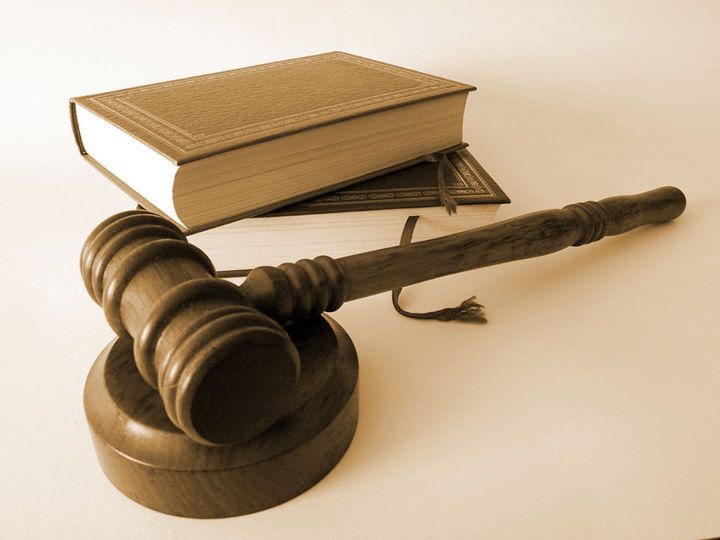We know that the novel Coronavirus, also known as COVID-19, suddenly changed the world's economic landscape in March 2020. We do not yet know, however, its full legal implications.
The Coronavirus has disrupted business contracts, real estate transactions, and all manner of employment relationships. Whether these previously-created obligations will be enforceable remains to be seen. The effect the Coronavirus has on the economy and its various sectors has greatly transformed expectations during these unprecedented times. A number of common contract legal defenses such as acts of God, force majeure, impossibility, and frustration of purpose, pose thorny legal questions.
Background
On March 13, 2020, the President of the United States of America formally declared that COVID-19 constituted a National Emergency under the provisions of the 1988 Robert T. Stafford Disaster Relief and Emergency Assistance Act (42 U.S.C. § 5121 et seq.) (the "Stafford Act"). Further, on March 4, 2020, the Governor of the State of California declared a "State of Emergency" throughout the State under the California Emergency Services Act (Gov. Code § 8625 et seq.) On March 19, 2020 the California Governor issued a state-wide "Shelter in Place" order, requiring all non-essential businesses to close, or otherwise ordered individuals to "shelter in place" until further notice. The effect of this Order may pose unique challenges to existing contractual relationships and may invoke numerous contractual provisions.
Acts of God
The first contractual provision that may be triggered due to the Coronavirus is an act of God provision. Under the law, no man will be held responsible for what no man can control. California law defines an "act of God" as (1) an extraordinary natural force that brings about the harm that is different from that threatened by one's negligence, which is (2) so unusual in its proportions that it could not be anticipated by a defendant. It is not sufficient merely to be unforeseeable. As a result, an "act of God" may excuse either the performance of an obligation, in whole or in part or a delay in performance. Notably, the determination of whether an event is an "act of God" is determined by a jury.
Contracts with an act of God present a unique question: whether the Coronavirus is actually so unusual that it raises to the level of extraordinary nature and was unanticipated by the contracting parties. With the United States subject to various diseases over the years such as SARS, Mad Cow Disease, Bird Flu, Ebola, and Swine Flu, it is an open question whether the Coronavirus pandemic was truly unexpected. Additionally, as China had been fighting this disease since the end of 2019, the date the contract was formed may come into play as a factor in the "act of God" determination.
Force Majeure
The next contractual provision that may be implicated due to the Coronavirus is a Force Majeure provision. The Latin expression "vis major" or "force majeure" is not exactly the equivalent of an "act of God." Instead, the test of a "force majeure" is whether under the particular circumstances there was such an interference as could not have been prevented by the exercise of prudence, diligence care. Unlike an act of God, for instance, it may consist of governmental intervention resulting from the necessities of war. Some contracts with a force majeure clause specify events that trigger its application.
A party seeking to rely on, or defend against, a "force majeure" argument should investigate what preparations could have been undertaken under the particular circumstances. Because the terms used in the "force majeure" may differ from contract to contract, the parties should closely analyze the contract to determine its applicability.
Impossibility
Another legal issue that could be presented because of the Coronavirus is the doctrine of impossibility. An "impossible" condition in a contract is void. The "impossibility" that will render a condition of a contract void must consist in the nature of the thing to be done, and not in the inability to do it. This means impossibility must be objectively impossible, not subjectively impossible or difficult. If the thing to be done is not naturally or necessarily impossible under all circumstances, a contract may be binding.
The doctrine of impossibility excuses performance, not because a party is financially unable to perform, but because performance itself has become impractical due to excessive and unreasonable expenses. That is, a thing is impossible when it is not practicable, and it is not practicable when it can be done only at an excessive and unreasonable cost. Nevertheless, an unusual or unexpected expense does not establish impossibility simply because performance is more difficult or costly than contemplated when the parties executed the contract.
By way of example, a businessperson attempting to invoke the doctrine of impossibility must show that more than the fact the businessperson would incur an excessive expense by continuing to complete the contract. Rather, the businessperson would have to show that the contract could only be performed if completing the contract would be impractical. Naturally, the market itself will form an important part of the analysis of this doctrine in a given case.
Frustration
Finally, the doctrine of frustration may be applicable during these unprecedented times. The doctrine of frustration is similar to the doctrine of impossibility, but frustration is not a form of impossibility. Instead, the excuse of frustration serves to mitigate the costs of disasters, not to provide a means of escape from contracts less profitable than anticipated. Frustration is not a viable defense when a matter was foreseeable, or controllable.
Again, the analysis of this defense will likely require a keen eye for detail of the conditions for the scenario. While a successful frustration defense may not completely eliminate any liability, its applicability may make the cost of any breach more bearable, and so it cannot be neglected as part of any discussion.
Conclusion
In these uncertain times, parties must carefully explore all of their legal options in order to fully understand their legal rights and obligations. The attorneys at Krogh & Decker provide their clients with sound guidance and firm advice in all manner of disputes and trying circumstances, and litigation when it becomes necessary.
Krogh & Decker, LLP, Business Attorneys (916) 498-9000 or www.kroghdecker.com/contact
The Importance of Preparing for Testimony
K&D Introduces Andrea Close as a New Associate Attorney

